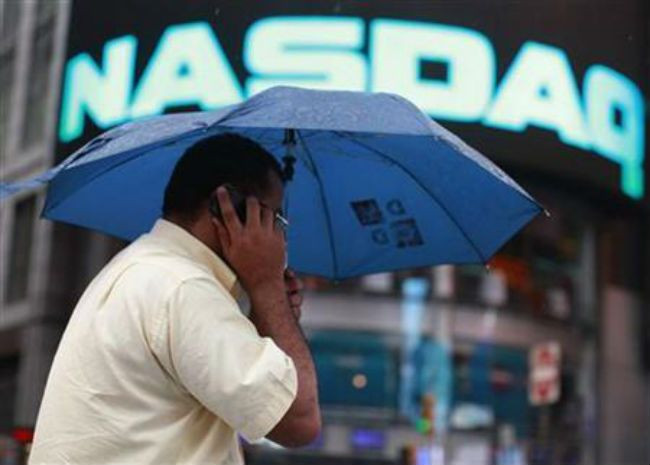
In normal times, next week's slew of U.S. economic data could be a springboard for a December rally in the stock market.
December is historically a strong month for markets. The S&P 500 has risen 16 times in the past 20 years during the month.
But the market hasn't been operating under normal circumstances since November 7 when a day after the U.S. election, investors' focus shifted squarely to the looming "fiscal cliff."
Investors are increasingly nervous about the ability of lawmakers to undo the $600 billion in tax increases and spending cuts that are set to begin in January; those changes, if they go into effect, could send the U.S.economy into a recession.
A string of economic indicators next week, which includes a key reading of the manufacturing sector on Monday, culminates with the November jobs report on Friday.
But the impact of those economic reports could be muted. Distortions in the data caused by Superstorm Sandy are discounted.
The spotlight will be more firmly on signs from Washington that politicians can settle their differences on how to avoid the fiscal cliff.
"We have a week with a lot of economic data, and obviously most of the economic data is going to reflect the effects of Sandy, and that might be a little bit negative for the market next week, but most of that is already expected - the main focus remains the fiscal cliff," said Peter Cardillo, chief market economist at Rockwell Global Capital in New York.
Concerns about the cliff sent the S&P 500 .SPX into a two-week decline after the elections, dropping as much as 5.3 percent, only to rally back nearly 4 percent as the initial tone of talks offered hope that a compromise could be reached and investors snapped up stocks that were viewed as undervalued.
On Wednesday, the S&P 500 gained more than 20 points from its intraday low after House Speaker John Boehner said he was optimistic that a budget deal to avoid big spending cuts and tax hikes could be worked out. The next day, more pessimistic comments from Boehner, an Ohio Republican, briefly wiped out the day's gains in stocks.
On Friday, the sharp divide between the Democrats and the Republicans on taxes and spending was evident in comments from President Barack Obama, who favors raising taxes on the wealthy, and Boehner, the top Republican in Congress, who said Obama's plan was the wrong approach and declared that the talks had reached a stalemate.
"It's unusual to end up with one variable in this industry, it's unusual to have a single bullet that is the causal factor effect, and you are sitting here for the next maybe two weeks or more, on that kind of condition," said Sandy Lincoln, chief market strategist at BMO Asset Management U.S. in Chicago.
"And that is what is grabbing the markets."
BE CONTRARY AND MAKE MERRY
But investor attitudes and seasonality could also help spur a rally for the final month of the year.
The most recent survey by the American Association of Individual Investors reflected investor caution about the cliff. Although bullish sentiment rose above 40 percent for the first time since August 23, bearish sentiment remained above its historical average of 30.5 percent for the 14th straight week.
December is a critical month for retailers such as Target Corp (TGT.N) and Macy's Inc (M.N). They saw monthly retail sales results dented by Sandy, although the start of the holiday shopping season fared better.
With consumer spending making up roughly 70 percent of the U.S. economy, a solid showing for retailers during the holiday season could help fuel any gains.
Ryan Detrick, senior technical strategist at Schaeffer's Investment Research in Cincinnati, believes the recent drop after the election could be a market bottom, with sentiment leaving stocks poised for a December rally.
"The concerns on the fiscal cliff - as valid as they might be - could be overblown. When you look at a lot of the overriding sentiment, that has gotten extremely negative," said Detrick.
"From that contrarian point of view with the historically bullish time frame of December, we once again could be setting ourselves up for a pretty nice end-of-year rally, based on lowered expectations."
SOME FEEL THE BIG CHILL
Others view the fiscal cliff as such an unusual event that any historical comparisons should be thrown out the window, with a rally unlikely because of a lack of confidence in Washington to reach an agreement and the economic hit caused by Sandy.
"History doesn't matter. You're dealing with an extraordinary set of circumstances that could very well end up in the U.S. economy going into a recession," said Phil Orlando, chief equity market strategist at Federated Investors in New York.
"And the likelihood of that is exclusively in the hands of our elected officials in Washington. They could absolutely drag us into a completely voluntary recession."
© Thomson Reuters.




